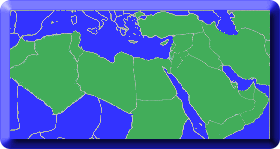
Topics in Middle Eastern and North African Economies
Document Type
Article
Publication Date
9-1-2018
Journal Title
Topics in Middle Eastern and North African Economies
Volume
20
Issue
2
Publisher
Middle East Economic Association and Loyola University Chicago
Abstract
This study examines the effects of cross-border return migration on intertemporal and intergenerational transmission of socio-economic status across six new harmonized surveys from three Arab countries: Egypt (1998, 2006, 2012), Jordan (2010, 2016) and Tunisia (2014). We link individuals’ current outcomes to those in prior years and to their parents’ outcomes. We first isolate the outcomes of interest – income, employment status, household wealth based on both productive and nonproductive assets, and residence status. Next, we evaluate individuals’ socioeconomic mobility over time and across generations as a function of their migration histories. Return migrants, current migrants, and non-migrants are distinguished. Transitions in individuals’ outcomes across years and generations are made functions of pre-existing socioeconomic status, demographics and migration status. Migration patterns are found to differ systematically between Egypt, Jordan and Tunisia, as well as across years. Migration destination is driven by economic, geographic but also historical considerations. Migrant flow from Egypt and Tunisia is highly concentrated, but that from Jordan is much more diffused, on account of job search methods and type of work sought. Egyptian migrants predominantly come from rural areas and disadvantaged governorates, and are less educated, while in Jordan the opposite is the case. Tunisia represents an intermediate case, with migrants slightly less educated but also less likely to be rural than non-migrants. Return migrants find employment in higher earning occupations and are more socially and intergenerationally mobile than non-migrants. However, they outperform non-migrants not only currently, but also in the previous occupation, occupation before previous, and eight years prior, suggesting that individual-level effects and demographics contribute more than migration experience per se. More research is needed to isolate the causal effects of migration spells on migrants’ lifetime outcomes.
ISSN
2334-282X
Recommended Citation
Hlasny, Vladimir and AlAzzawi, Shireen, "Return Migration and Socioeconomic Mobility in MENA: Evidence from Labor Market Panel Surveys". Topics in Middle Eastern and North African Economies, electronic journal, 20, 2, Middle East Economic Association and Loyola University Chicago, 2018, http://www.luc.edu/orgs/meea/
Creative Commons License

This work is licensed under a Creative Commons Attribution-Noncommercial-No Derivative Works 3.0 License.
Copyright Statement
© 2018 The Authors



Comments
Presentation of the articles in the Topics in Middle Eastern and North African Economies was made possible by a limited license granted to Loyola University Chicago and Middle East Economics Association from the authors who have retained all copyrights in the articles.